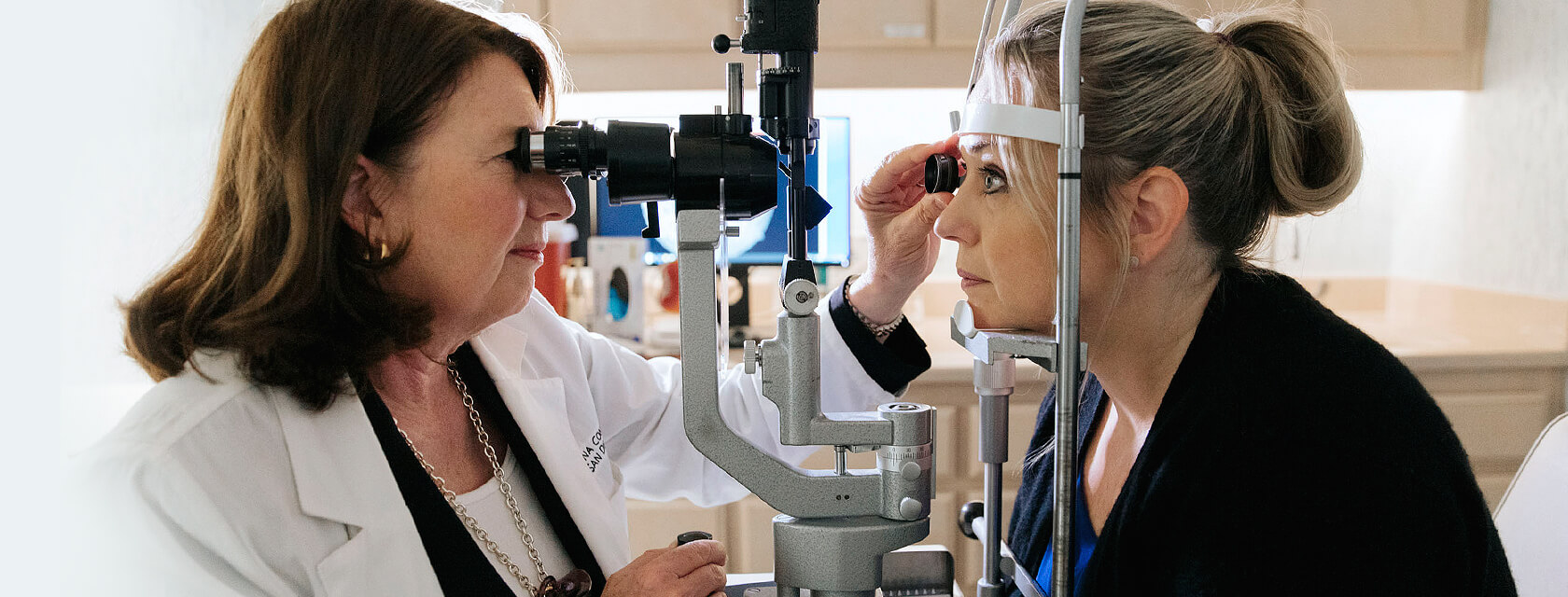Before getting started, read our Retina 101 page.
What are epiretinal membranes (aka macular puckers)?
Epiretinal membranes are thin, cellophane-like, layers of tissue that grow over the surface of the macula. These go by several names in addition to epiretinal membranes, including macular pucker, surface wrinkling retinopathy, and cellophane retinopathy. Many patients are often told by their primary eye doctor that they have a "wrinkle" or "pucker" on their retina. Most are what we call “idiopathic,” meaning they have no specific cause, but are typically associated with a history of vitreous detachment from the macula. As the vitreous separates it likely creates some irritation and inflammation, with the membrane growing in response.
Epiretinal Membrane
Less commonly, membranes are associated with retinal tears, a history of surgery, and/or inflammation in the eye. Over time, the membrane may thicken and/or distort the macula. Epiretinal membranes are very common, but uncommonly significantly affect vision. If and when they become visually-significant, surgery may be recommended.
![Color photograph and an optical coherence tomography [OCT] scan of an epiretinal membrane / macular pucker.](https://www.rcsd.com/media/pages/retina-conditions/epiretinal-membrane/5b6f05ca60-1679682821/rcsd-figures.007.jpeg)
Most epiretinal membranes are asymptomatic. The most prominent symptom if the membrane worsens is distortion of central vision with many patients also noting a loss in central clarity and/or a slightly enlarged image size in the affected eye (macropsia). These symptoms are often subtle with mild epiretinal membranes, and may only be noticed by covering the other eye. Symptoms typically progress very slowly.
Epiretinal membranes are transparent and appear like wrinkled cellophane on the surface of the macula.
Mild epiretinal membranes are typically observed. These typically worsen very slowly over time, but there is no urgency in treating them. Vitrectomy surgery is considered for visually-significant membranes that reduce the visual acuity to about 20/40 or worse and/or are associated with significant visual distortion or other dysfunction. The surgery involves a complete vitrectomy with gentle peeling of the membrane from the macula.
Without treatment, patients may notice a slow decline in vision, but to a significant degree. Visual outcomes following surgery are very good, with improvement in visual acuity and symptoms of distortion as the macula slowly heals over months.

